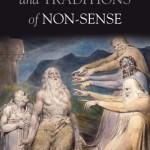We run our website the way we wished the whole internet worked: we provide high quality original content with no ads. We are funded solely by your direct support. Please consider supporting this project.

Why You Have Free Will
God’s decision to create a cosmos that was capable of love and that was, therefore, populated with free agents (see previous post) was also a decision to create and govern a world he could not unilaterally control. These are two aspects of the same decision. What it means for God to give agents some degree of morally responsible say-so over what comes to pass is that God’s say-so will not unilaterally determine all that comes to pass.
Of course, many have argued otherwise by saying that God determines the free choices of agents “in such a way” that these agents remain responsible for the evil they choose while God remains all-good in ordaining them to do these evil acts. Where is the coherent meaning in this? Language has meaning only insofar as it connects, at least analogically, with our experience. But I find nothing in my experience-—or any conceivable experience—-that sheds the least bit of light on what this mysterious “in such a way” might mean.
To illustrate, suppose that a scientist secretly implanted a neuron-controlling microchip in a person’s brain without that person knowing it. With this chip, the scientist could coerce this person to feel, think, speak, and behave however he wanted. Let’s say that this chip caused this person to murder someone. Can we conceive of any form of justice that would find the scientist to be innocent of the crime while holding the controlled subject responsible? Whoever or whatever rendered the murder certain to occur is morally responsible, whether by means of a microchip or a mysterious deterministic decree.
God limits the exercise of his power when he creates free agents. This is the view of open theism. To the extent that God gives an agent free will, he cannot meticulously control what that agent does. Yet the “cannot” in this statement is not a matter of insufficient power, for God remains all-powerful. It is simply a matter of definition. As stated in the previous post, just as God cannot create a round triangle or a married bachelor, so too he cannot meticulously control free agents.
If God revoked a person’s capacity to make a certain choice because he disapproved of it, then he clearly did not genuinely give him the capacity to choose between this or that. If he truly gave that person the freedom to go this way or that way, he must, by definition, allow them to go that way, even if he abhors it.
Does this mean that God can do nothing to prevent us from making choices that he abhors? Of course not. God can do a myriad of things to influence us in a different direction or to influence other people to help prevent, or at least minimize the evil someone intends. But the one thing God cannot do, by definition, is meticulously control or unilaterally revoke a free will once given. God has sufficient power to do anything he pleases, but the constraint free agency places on God is not about power; rather, it is about the metaphysical implications of the kind of world God decided to create.
—Adapted from Four Views on Divine Providence, pages 190-192
Category: General
Tags: Choice, Free Will, Open Theism
Topics: Free Will and the Future
Related Reading

God of Sense and Traditions of Non-Sense
As the title suggests, in his book, God’s Problem: How The Bible Fails to Answer Our Most Important Question – Why We Suffer, Bart Ehrman argues that the Bible has nothing compelling to say about the problem of evil. Well, I just put down a beautifully written four-hundred and fifty page book that compellingly argues…

How can you put your trust in a God who’s not in control of everything?
Question: I read your book Is God to Blame? and found it to be very compelling. It’s rocking my world. But I’m also finding I’m now having trouble trusting God like I used to. I used to believe that God ordained or at least foreknew all that was going to happen. Now I’m questioning this,…

What about the Gospel of John and Calvinism?
Question: The Gospel of John seems to teach that people believe because God draws them, rather than that God draws people because they believe. If this is true, how can you deny the Calvinistic teaching that salvation is based on God’s choice, not ours? Answer: As you note, many people find support for the view…

What is the significance of Matthew 25:41?
The Lord teaches that on the judgment day he will say to the wicked, “Depart from me into the eternal fire prepared for the devil and his angels…” Hell was expressly prepared for “the devil and his angels”; humans were never meant to go there. But if God eternally knew that certain persons would end…

How do you respond to 1 Peter 1:1–2?
As I read it, I Pet 1:2 is the thematic statement for the whole chapter. As I will show in a moment, the rest of the chapter unpacks this statement, so the rest of the chapter should be used to interpret this statement. In the rest of the chapter we find that believers… * have…

How do you respond to 2 Timothy 1:9–10?
“…this grace was given to us in Christ Jesus before the ages began, but it has now been revealed through the appearing of our Savior Christ Jesus…” Those who hold that the future is eternally settled and that God knows it as such sometimes argue that God had to foreknow who would believe in order…
